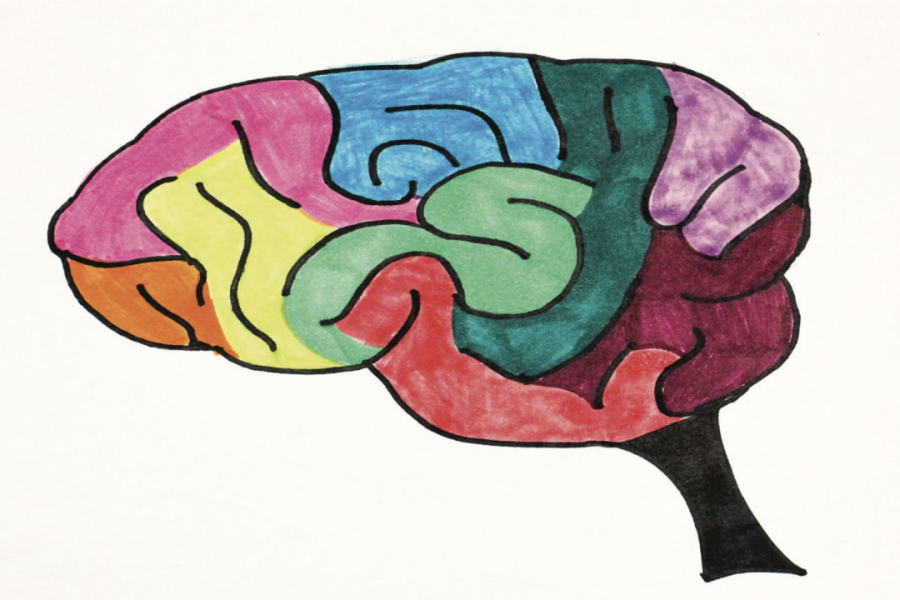Students, staff collaborate to create mental health Lunch and Learns
Lunch and Learns meet monthly, cover a variety of mental health topics
As a result of high stress levels among students, New Trier has created a mental health lunch group to teach students how to improve their mental health and manage their stress.
The Lunch and Learns, which meet monthly in W321, are aimed at targeting mental health issues that adolescents face.
The mental health conversation was spearheaded by students who worked alongside the administration to develop a comprehensive mental health assistance program.
Specifically, students from clubs like the Student Council and the Activities Leadership Practicum Seminar (ALPS), which is a class exclusively for club heads, worked to incorporate a student perspective in planning the program.
Many students struggle with mental health issues at New Trier. The social work department regularly sees 25-30% of the student body, but more often students do not seek help through outside resources. While not always stress-related, academic pressure can have a large impact on students’ mental health.
“I think there’s definitely extremely high stress levels,” said senior BJ Moses-Rosenthal, who attended the meetings because of his position in ALPS as the head of the Social Service Board. “If you ask people how stressed they are, how much sleep they are getting, how good they feel about their mental well-being, you would get people giving higher scores on stress and lower scores on the mental well-being than you would at other schools.”
At first, the meetings had a substantial turnout, but attendance has dwindled. According to junior Ethan Van Gosen, who was involved in the initiative because of his role in Student Council, the first lunch session had about eleven people per period and the advisory meeting had twenty to thirty.
The fifth period lunch meeting on Feb 20 only had three people show up, two of whom were from the Josselyn Board. However speech pathologist Julie Smith, who helps coordinate the program, is optimistic about its future outreach.
“[The program] just started, and I think it was a small group of students who attended. I think that with anything that’s new and getting off the ground, that’s how things start. My hope is that with time and advertising and getting the word out that we can find ways to provide more information for students,” said Smith.
Smith also saw that the lunch sessions are not a definite solution, and that the administration is open to ideas for what forms the program could take.
“I think that there’s a lot of questions regarding what will be the best way to provide information for students. We’re very open to different ways,” said Smith.
So far, students seem to be satisfied with the way that the programs were run.
“I thought that they did a nice job on the presentation. They had nice visuals, the speaker was very personable, and I felt that if I had a question I could interrupt and ask it,” said Moses-Rosenthal.
In order to appropriately choose the information to present in the sessions, the administration sent out a survey to students for their input into which topics to cover.
“Kids said that they wanted to hear about anxiety disorders, depression, stress reduction and resources, and how to identify and support a friend with these issues. Those were the highlights of the survey,” said Winnetka Campus principal Denise Dubravec.
Supporting others with mental health issues is a big focus of the administration’s plan for the near future. The Mental Health QPR Training will allow students to assist other students with mental health issues so that they can seek out the help that they need. QPR is a training program for teachers to recognize the warning signs of mental health issues in students.
“Being trained to deal with mental health issues is a life skill. We’re not becoming social workers, but it gives us a better understanding of how to help someone who is struggling,” said junior Erin Gorney, who is a part of the Josselyn Junior Board at the Josselyn Center for Mental Health.
The program is still just getting off the ground, laying the groundwork for increased discussion in the future.
“I think that in the past, we never really talked about mental health. Now that we are, this is a really good spark for change,” said Gorney.








































